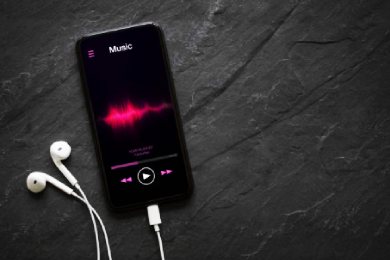Streaming services like Spotify and Pandora have become more popular than buying individual tracks or albums. In fact, streaming services are now the primary way that most people listen to music.
But do these streaming services have any downsides? It’s natural to be skeptical of new technology, especially when it comes to something as personal as listening to music.
Many people wonder whether streaming services lower the quality of their music files, and if so, what’s the trade-off?
Streaming services that do not offer lossless streaming lower the quality of music with compression algorithms; however, when using the high quality on these services the difference is essentially indistinguishable from the lossless version.
Some services do offer lossless audio streaming though!
This article will explore this topic in detail, addressing common concerns about streaming services and how they affect your audio files.
What Are Streaming Services?
A streaming service is a website or app that allows listeners to access music from a remote server, rather than downloading it to their computer or device. This allows users to access music instantly, without having to wait for it to download.
Streaming services are also often free or have a reduced price compared to buying music from an online store.
There are many types of streaming services.

One of the most popular is Spotify, which allows users to create playlists, stream music online, or listen to playlists curated by their favorite artists.
Another type of streaming service is a radio station, where users can create a custom listening experience by selecting genres and artists they like. Pandora is the most well-known example of this type of service.
Does Streaming Lower the Quality of Music?
Audio services that offer lossless audio streaming do not lower the quality of the music.
Some audiophiles worry that streaming lowers the quality of their music. But there’s disagreement about whether or not this is true.
While many streaming services do lower audio quality, the compression algorithms make it essentially indistinguishable unless compared directly to the lossless version by phase canceling the two.
The video by White Sea Audio proves this theory is false by doing a direct comparison between the master of the audio with various streaming services.
The majority of services, such as Spotify, use lossy audio formats that slightly alter your music’s quality. Audio compression saves time and storage space, but it also lowers the quality of music.
On the other hand, some services, like Deezer and Tidal, use a lossless format. This means that they don’t compress or alter your audio files in any way — they keep the original file intact, without altering its quality.
How Streaming Services Lower Audio Quality
There are several ways that streaming services can lower the quality of your music. If a streaming service uses a lossy format, its compression algorithm will alter your audio files.
Typically the compression algorithms work by removing parts of the audio file that humans can’t hear.
It’s a similar concept to the way that a JPEG file reduces an image’s file size, but it applies to sound as well. But, an audio file can be 10 times larger than a JPEG image.
This means that streaming services need to use a lot of compressions to save space. When a streaming service uses a lossy compression algorithm, it removes certain parts of your music, making it sound less crisp.
Is High-Quality Music Available Through Streaming?
Yes, there are streaming services that offer lossless audio providing CD-quality music, meaning you don’t lose any quality. These services typically cost more or come standard from the following services:
- Apple Music
- Deezer Premium
- Tidal HIFI
- Amazon Music HD
- Qobuz
While you can get high-quality audio from streaming services, you can also get high-quality audio files by purchasing individual tracks or albums online too.
If you’re looking for a high-quality listening experience, you can also convert your CDs to FLAC or ALAC, two lossless audio formats.
This will let you enjoy all the benefits of high-quality audio, without the downsides of streaming.
If you’re looking for a high-quality audio experience, you don’t need to give up on your music just because you’re streaming it. In fact, the algorithms are so good that many, if not most, people will never hear the difference.
Conclusion
This article explored the claim that streaming services lower the quality of listeners’ music. Many streaming services, such as Deezer and Apple Music, use lossless audio, which means that they don’t alter your audio files in any way.
In contrast, services like Spotify use a lossy format, which slightly alters your music’s quality.
If you want to enjoy all the benefits of a high-quality audio experience, you don’t have to give up on streaming.
You can convert your CDs to lossless audio formats, like FLAC or ALAC, and stream those files instead of downloading them to your computer or device.
And if you want to listen to music on the go, you can use a streaming service with a lossless format.

